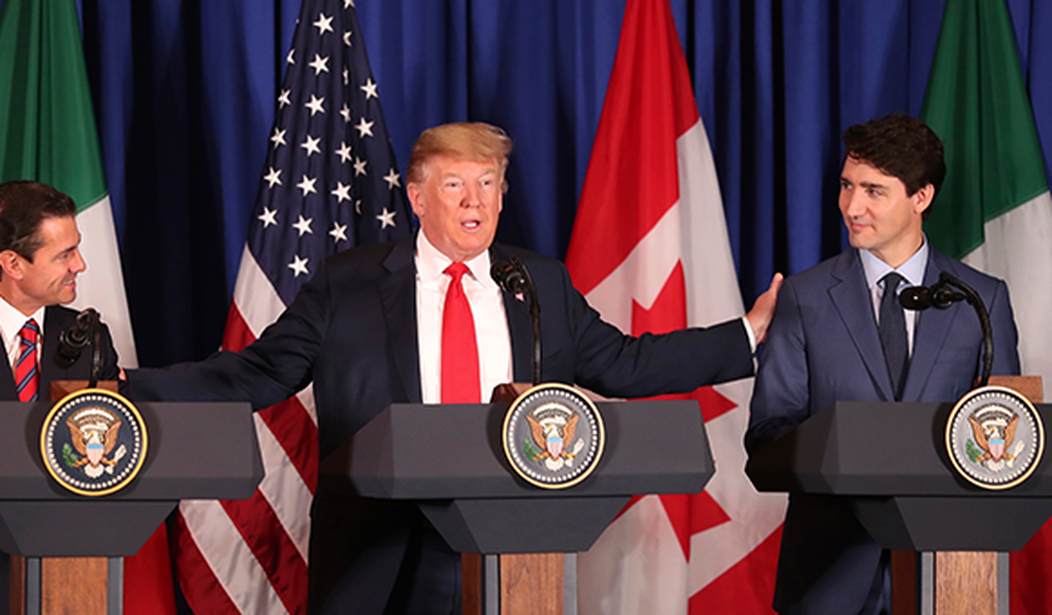Congress is expected to vote on an updated trade agreement with Canada and Mexico in the coming months. The new deal -- the U.S.-Mexico-Canada Agreement -- includes strong intellectual property protections for certain complex prescription drugs.
These provisions should be cause for celebration, especially for patients. The protections will incentivize biopharmaceutical research and encourage the development of future cures.
The global health landscape is full of good news and reason for hope. Since 2000, more than 500 new medicines have been approved by the FDA. Those drugs have extended and enhanced millions of people's lives. Globally, there are more than 7,000 medicines in development to treat and cure a vast array of diseases and afflictions. And 74 percent of those experimental drugs are potentially first-in-class, meaning they treat disease in an entirely novel way.
Of the medicines in development, the lion's share -- more than 5,000 -- come from labs in the United States. This is not coincidental. This research takes place in the United States because it is incentivized and rewarded here through robust intellectual property protections.
The United States has taken particular care to protect biologics, which are complex drugs derived from living organisms. Existing U.S. law grants 12 years of "regulatory data protection" for biologics. During this period, generic drug companies can't use a biologic manufacturer's research data when developing their own copycat medications, known as biosimilars.
This 12-year window was established by the Biologics Price Competition and Innovation Act, which received broad bipartisan support in Congress and was signed into law by President Obama in 2010. It gives innovators a chance to recoup their development costs and plow money into additional research.
Recommended
The USMCA sets the minimum term of biologic data protection at 10 years. Currently, Canada only offers eight years of data protection while Mexico provides five years, at most. In other words, the new trade deal will offer more robust protections to medical innovators who sell their products in those two nations.
Without such protections, investors would have little incentive to pour money into expensive and risky drug discovery. Current estimates indicate that the cost of bringing a single drug to market is $2.6 billion and requires between 10 and 15 years. Moreover, only 12 percent of experimental drugs that reach clinical trials are ultimately approved by the FDA.
Critics incorrectly argue that increasing IP protections will keep drug prices high by delaying the introduction of cheaper biosimilars. But the evidence indicates otherwise. A study by the Council on Foreign Relations found that "national drug spending has remained flat as a share of overall health expenditure in the countries with recent U.S. trade agreements. The growth in per capita pharmaceutical spending in these countries is in line with nations of similar income that have not entered into U.S. trade deals and have no market exclusivity requirements."
This makes sense, since the provisions in USMCA in no way prevent biosimilar firms from bringing their products to market. Rather, biosimilar producers are merely prevented from relying on an innovator's data to secure regulatory approval. Biosimilar firms are still able to bring their products to market, as long as they generate their own data establishing the products' safety and efficacy.
In fact, strengthening IP protection could actually lower drug prices by increasing the availability of breakthrough treatments and cures. More drugs would lead to more competition, which will drive down prices across the board.
We see this happen all the time. In 2014, Gilead released Sovaldi, an $84,000 cure for Hepatitis C. That price was roundly criticized, but it didn't last. As multiple competing cures entered the market, Gilead felt pressure to lower prices. In 2018, the company announced it would start selling the medicine for less than a third of the original list price.
The provisions in USMCA reflect the delicate balance between ensuring that pharmaceutical innovation is available to all, while also rewarding the innovator. Without such protections, biopharmaceutical innovators would scale back their investments in risky, expensive, time-consuming drug development.
If Congress desires medical breakthroughs, passing USMCA should be a foregone conclusion.
























Join the conversation as a VIP Member